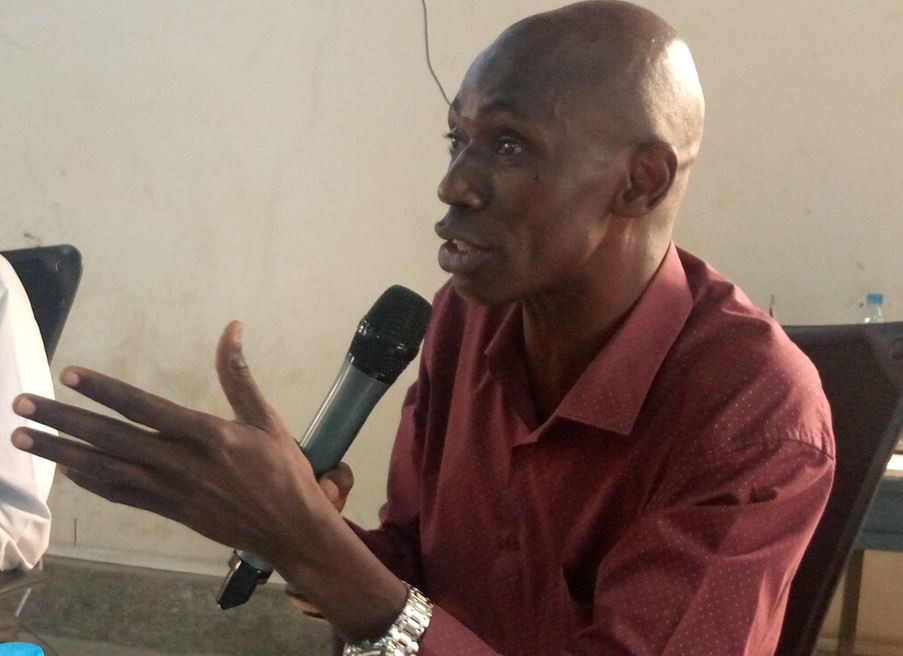Tough questions that follow Azande Kingdom resurgence

Dressed in brown traditional royal attire, and sitting on a chair being tossed by young, energetic young men, Atoroba Peni Rikito Gbudue made a kingly entry at Yambio Freedom Square to grace the day that would culminate in the rebirth of the Azande Kingship.
He was here to be crowned the successor of King Gbudue, the Azande leader whose regime fell 117 years ago.
There were songs, ululations, dances and speeches from the regional leaders as the day wrapped up with gifts for the new king in the country.
The Azande people had gotten their long lost glory by reinstalling His Majesty Atoroba Peni Rikito Gbudue to take over the mantle of power once relinquished by his great grandfather who died in 1905.
Values question
With the return of royalty comes the question of whether the monarch will be able to embrace the ancient values that were observed in the previous regime that ended over a century ago.
Secondly, will royal power have the clout it once enjoyed, or will it be subservient to the state and national leadership that is based on modern ideas? In a nutshell: will the Azande juggernaut survive the modernity wave or does it risk fizzling out?
During his crowning, King Gbudue emphasised the call for unity and preservation of endangered cultures. He said: “Our aim of the refurbishment of this kingdom is to promote and preserve our culture, and we are not going to interfere with other people’s culture. We are going to work according to what our powers give us as a kingdom.”
There are those who believe that the leadership will mostly focus on Azande cultural traditions, such as fostering unity among the traditional leaders, embracing traditional beliefs like traditional medicine, dances, and dressing code, and empowering others like the rainmakers.
But how did they live, and have the beliefs changed? Some of the beliefs held by the Azande are largely guided by the widespread notion that most misfortunes are caused by witchcraft and that a witch will only attack those against whom she has a grudge.
In the book titled ‘The Organization of a Zande Kingdom’ authored by Evans-Pritchard in 1960, the Azande’s cultural values are depicted as following a clear set of rules cutting across socio-political realms.
For example, serious allegations of crimes such as adultery, witchcraft, or murder were taken to a ruler’s court. But these are now litigated in modern courts.
Fines were imposed for adultery with a non-royal woman, and witchcraft that resulted in death was usually dealt with by magical retribution. A royal wife’s adulterous lover or a murderous witch may face the death penalty.
Part-time specialists ruled on matters of witchcraft and magic, and witch doctors, who were trained in the use of magical drugs, performed public séances. Nagidi on the other hand, are thought to get their power straight from God and are contacted in private for day-to-day matters.
In Azande culture, music, both instrumental and vocal, is particularly important. Traditional instruments such as wooden gongs, skin drums, and whistles are used.
Political structure
Pre-colonial times, the enormous Zande territory was divided into several tribal kingdoms, separated by vast swaths of uninhabited jungle, Evans-Pritchard notes.
Except for the westernmost kingdom, Rafai, most of these kingdoms, whose number and size changed throughout time, were ruled by members of the Vungara dynasty among Zande speakers.
The ruler of Rafai, like the rulers of the similarly arranged Nzakara kingdoms, was a member of the Bandia dynasty, which the Vungara regarded as equal to their own.
These conquest-based kingdoms were sustained by more or less constant warfare. Each kingdom was divided into provinces, which were mostly ruled by the king’s younger agnates, though Bandia governors were occasionally appointed in some eastern Vungara kingdoms.
Game men hunted and fish women caught were used to augment the diet. Termites were a delicacy consumed during the dry season.
Cotton farming was practised alongside other economic activities, as well as subsequent resettlement, interrupted traditional patterns of shifting agriculture in colonial times. Hunting is no longer as popular as it once was, but it is still done off the beaten path.
Allaying fears
With fears mounting that the resurgence of the royal leadership could interfere with other neighbouring cultures, members of the royal family such as Rimbasa Daniel quash these concerns.
“Azande is not saying anything about the other groups. What is going to happen is a and traditional [thing] which has nothing to do with fear of invading other people’s rights,” said Rimbasa.
“This one is just a symbolic modern kind of kingdom which will have only two things: one, its objective is to preserve and promote the culture of the people; and two, it will develop a system that will supplement the government’s work. It is going to work under the government, ” he added.


